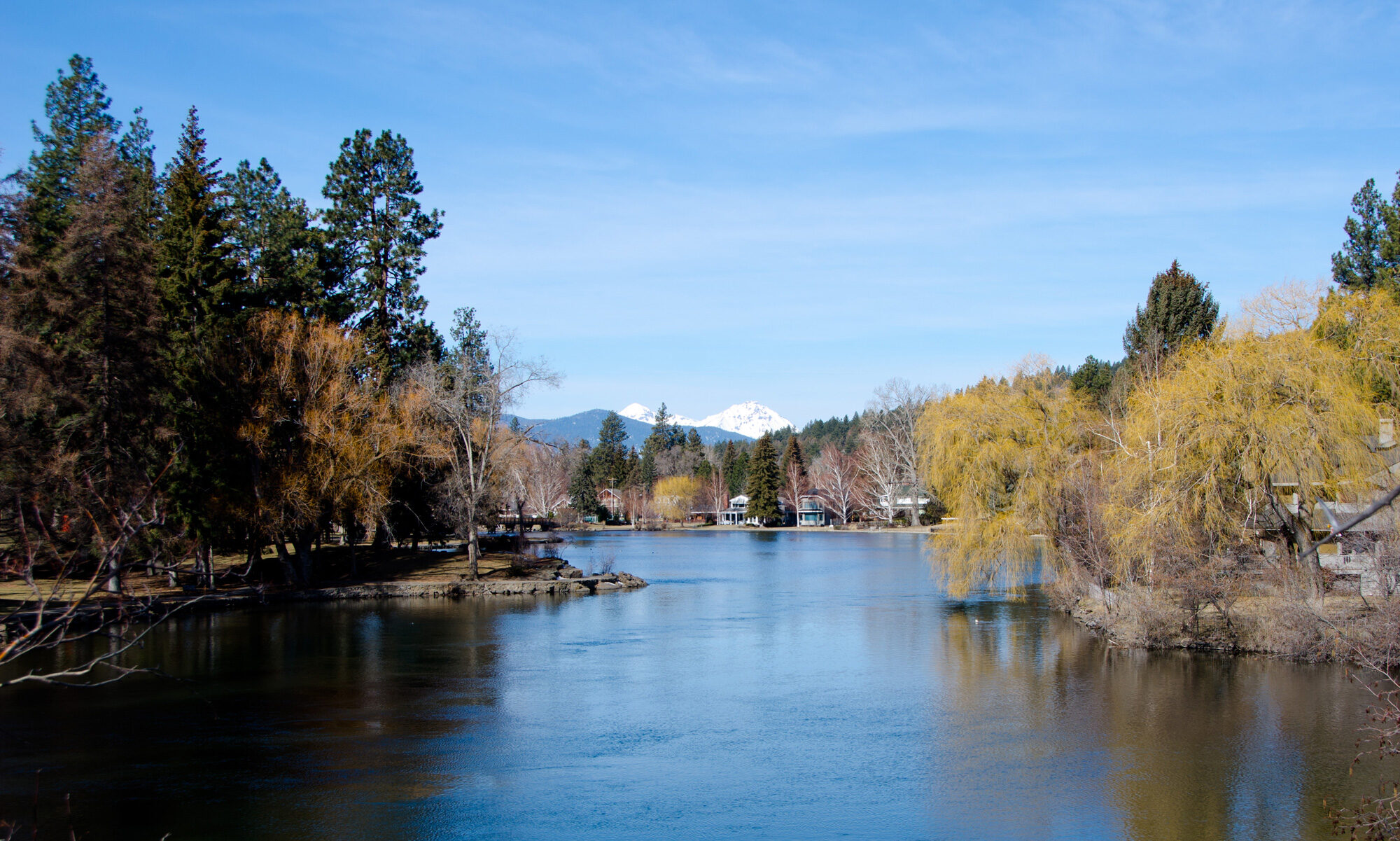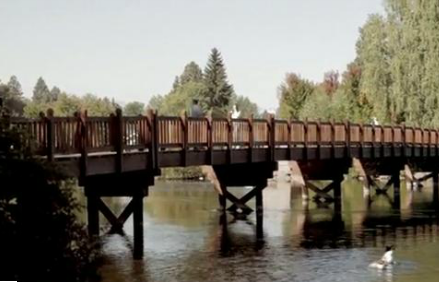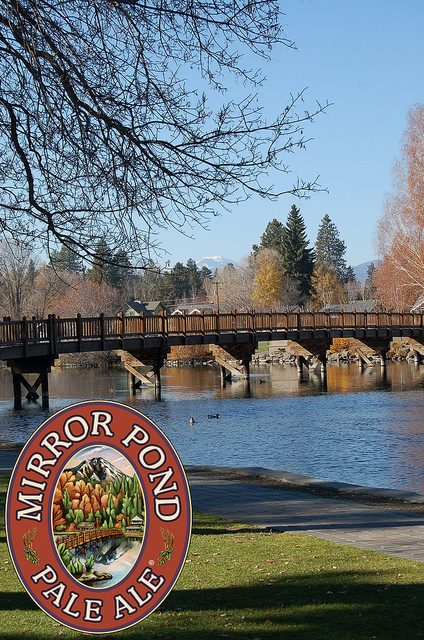Solution to Mirror Pond will come from partnership
With regard to Mirror Pond and the various strategies to study/dredge one of Central Oregon’s defining scenic places, I wonder if all the folks involved with managing Mirror Pond realize the amazing opportunity that this “problem” presents.
Silt happens. When Mirror Pond was last dredged in the mid-1980s, it was a quick fix. There was general agreement then that the pond would need dredging again in 25 years or so. Nothing was done at the time to prepare for that eventuality, however. Central Oregon was in the middle of a recession — sound familiar? — with double-digit unemployment.
The strain and pain of that earlier recession did teach us to rely on ourselves and build community partnerships to move forward. Regional economic strategies, the Bill Healy transitional housing complex, the Oregon State University-Cascades Campus and the partnership for fire protection between the city and the rural fire protection district — all are examples of community partnerships with broad participation that accomplished great things, relying on innovation and synergy, more than just another tax measure.
For Mirror Pond, an opportunity exists to develop a similar dynamic partnership among the pond’s managing and regulating agencies. The city of Bend and Bend Park & Recreation District manage the land and public use of the park surrounding Mirror Pond. PacifiCorp operates and manages the dam that forms Mirror Pond. And Central Oregon’s irrigation districts control the water that flows through Mirror Pond.
For any one of those managing agencies, Mirror Pond does present a difficult, possibly insurmountable problem. For all four agencies working together, an equitable and lasting solution could be achieved long before we reach a point where crossing the pond no longer requires a bridge.
In order to seize the opportunity that Mirror Pond offers, all of the managing agencies need to accept the challenge and take responsibility for fixing it. The first step is a commitment from the four Mirror Pond management agencies to jointly fund a study. Share the cost, share the risk, as they share the benefits.
Now, a study doesn’t do anything to fix Mirror Pond. It will, however, provide a foundation and structure to support the best possible fix for the pond and for the community.
The best fix for Mirror Pond will come with:
- An analysis of the regulatory and environmental impacts associated with dredging the pond.
- An evaluation of the best management practices and most recent engineering technology.
- Public involvement.
- A broad-based community commitment to a long-term solution.
A study will do all those things and one more. It will provide the key to matching state/federal funding for a stable, lasting fix for Mirror Pond.
Any emergency quick-fix dredging of the pond will still require some environmental assessment that will more than likely be challenged in court because it is a quick fix, not the right fix.
A study, backed by a committed community partnership, opens up wider access to state and federal funds, while offering the strongest possible application for assistance in a highly competitive environment for state and federal support.
All it takes to make this happen is for the managing agencies to step up, take responsibility and do right by the pond. This beautiful, heavily used and highly valued piece of Central Oregon deserves it.
And who knows? If the agencies can work together to fix Mirror Pond, what other community issues could be resolved by building partnerships and finding the “opportunities?”
Source: The Bulletin
Landmarks
This video from Deschutes Brewery features scenes from around Oregon and the Old Bend Neighborhood. Look for Drake Park, Mirror Pond, and some homes in the Old Town Historic District. There is very brief nudity, which is strange for a American beer commercial.
Thank you, Fate. Karma. Destiny. Cascade peaks out the front door. The Deschutes swirling out the back. Everywhere we turn, nature tosses something epic, jaw-dropping or downright spiritual our way. We take inspiration, and pay tribute, with intense, pioneering, namesake beers. In fact, a person could carve out a damn fine adventure careening from Black Butte to Mirror Pond to Green Lakes and the far reaches of our High Desert home. Not that we’d ever suggest that or anything. That would be crazy. Or Bravely Done.
Got the van packed yet?
Mirror Pond dredging debated
Momentum is swinging toward putting a bond before voters in November to fund the dredging of Bend’s Mirror Pond.
Friday, members of the Mirror Pond Management Board met to consider options for cleaning the pond, which has been filling with sediment since it was last dredged 28 years ago. Until recently, the board had been leaning toward commissioning a study to determine how to address the sedimentation problem, and possibly creating a special taxing district that could provide a long-term funding stream for upkeep of the pond.
After Friday’s meeting, the board is now moving in the direction of a dredge-first, ask-questions-later approach.
Dredging will inevitably be part of cleaning up Mirror Pond, members indicated, and the public is unlikely to be willing to foot the bill for further study.
“I don’t see the public supporting a study — just a study alone,” said board member and Bend City Councilor Tom Greene. “They want results.”
A steering committee assembled by the board concluded that dredging should come before an extensive study. A comprehensive study would cost about $500,000, and none of the organizations represented on the board — including the city, Bend Park & Recreation District, Pacific Power and Bill Smith Properties — are willing to provide the funding.
Parks District director Don Horton said it’s not clear how much public support there is for a bond or a taxing district. To find out, the park district will include questions about the project on a soon-to-be-conducted survey of residents.
In the meantime, Bend community development director Mel Oberst will be directing his staff to develop better estimates of the cost of dredging, and to research the extent of federal and state permitting that would be required.
Current cost estimates for dredging the pond are between $2 million and $5 million. The last dredging in 1984 was performed for $312,000.
Not all members of the board are committed to the new direction. Ryan Houston, executive director of the Upper Deschutes Watershed Council, cautioned that board members could be “shooting ourselves in the foot” by proceeding with dredging ahead of a thorough study. A dredging that fails to take into account how water moves through the area could result in the pond silting up soon after the work is completed, he said, requiring additional costly measures.
Unless measures are taken to remove the silt from the pond, it is believed the river will eventually recede to a narrow channel lined by swampy shallows on either side. Horton said the area just upstream of the Colorado Avenue bridge, an area that was once routinely dredged when it served as a log storage pond, is a good model of what an unaltered Mirror Pond might look like in 50 years.
Source: The Bulletin


